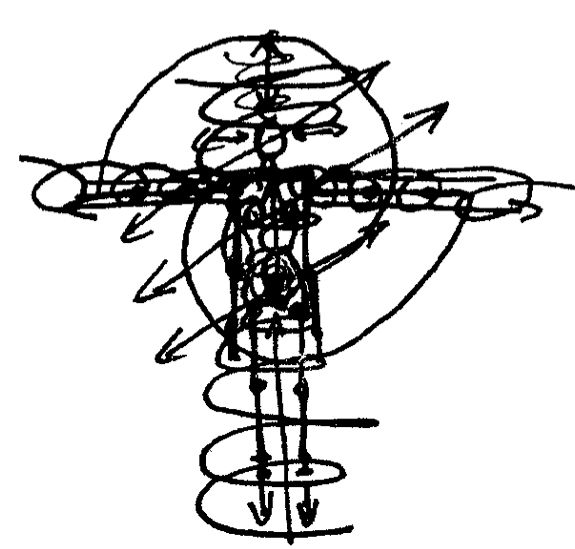(h)ON(or)(ing) LOVE
by Daria Faïn
“I’m here because I love you.” (Ralph Lemon to Meg Stuat in the context of her TANZ Congress in NYC)
“Maman, les robinets que dieu a fait pour la mer doivent être très très grand.” (3-year old Jean Claude Giraudo, spoken to his mother coming out of church: “Mom, the spigots of the sea that god made must be very very big.”
Helen Keller said that when she came upon the word LOVEfor the first time, it was incomprehensible—as an abstract concept can be—without any notion of how to relate it to her experience, somatosensorally.
Although I believe that love is innate, it’s not a given… one needs to go through a process of recognition of what one feels to experience the word LOVE— a kind of paradox.
Is it really even possible to love only those we love? Or to fall in and out of love through language?
What, other than love, could possibly be more exclusive than love?
It might be helpful to bring in Chinese Energetics because it disjoints or differently locates the action and accessibility of love and compassion and impartiality. In Chinese Energetics, the emotion of LOVE is seated in the heart and is associated with the agency of fire. It is the Empress/Emperor of our organism, in which each organ represents a ministry to serve it. (In Chinese Energetics each organ is assigned to a different governmental department.)
The paradox of the position of the Empress/Emperor is that, in essence, fire is not a substance that can be grasped. The heart moves the blood to the furthest reaches of the body and activates our limbs, while remaining empty. (You’d be in serious trouble if your heart was “full.”) It’s a hollow organ. It’s Yin. While the pericardium pumps, as it must, from the empty space of the heart-center called “the heart of the heart” radiates a form of electromagnetism. The closer we get to the stillness held within the heart the more it radiates. To be familiar with this “place” is to be in the flow of life without constriction, without affixing to the way it feels. It’s like holding a bird in the palm of your hand without capturing it … marveling. Beholding.
So, is LOVEsomething we learn or is it absolute? How does this difference manifest? In a country like the U.S., we use the word LOVEat the drop of a hat, for excitement, for reassurance, for nothing at all, for something we LIKE, where “like” becomes a colloquial filler, hedge, hesitation, quotative or disfluency before or after nearly every phrase. LOVEis used to express excitement toward something or someone—yes, excitement related to our blood gushing. “I’m super excited!” While bliss is just bliss. What about pleasure? Ha! Pleasure is skillful means like “the art of love”, or the simplest thing. Minouche (my dearly departed cat) putting her paw on my face. Nothing to be against or aghast at! Sweetness.
Do we love by becoming part of, or only become part of what we love? What am I saying about myself? I don’t want to be ruled, not even by emptiness, much less like-mindedness. Is love exclusive? If there is an unloved part in myself, I exclude it at my own peril. Where I repulse. I’m terrified by the responsibility of being in dialogue with those who exclude, and those who exclude without excluding. My compassion is only as strong as my enemies (as my enmity.) May I be stronger than having enemies. Especially when defeated.
It’s completely alive. We put together what we experience with what we experience, instantly impactfully. Too simple to see. To not say. J’adore. Said of anything. We all speak language. It’s not the alphabet per se that discriminates. While words are more than they can say. Mostly.
